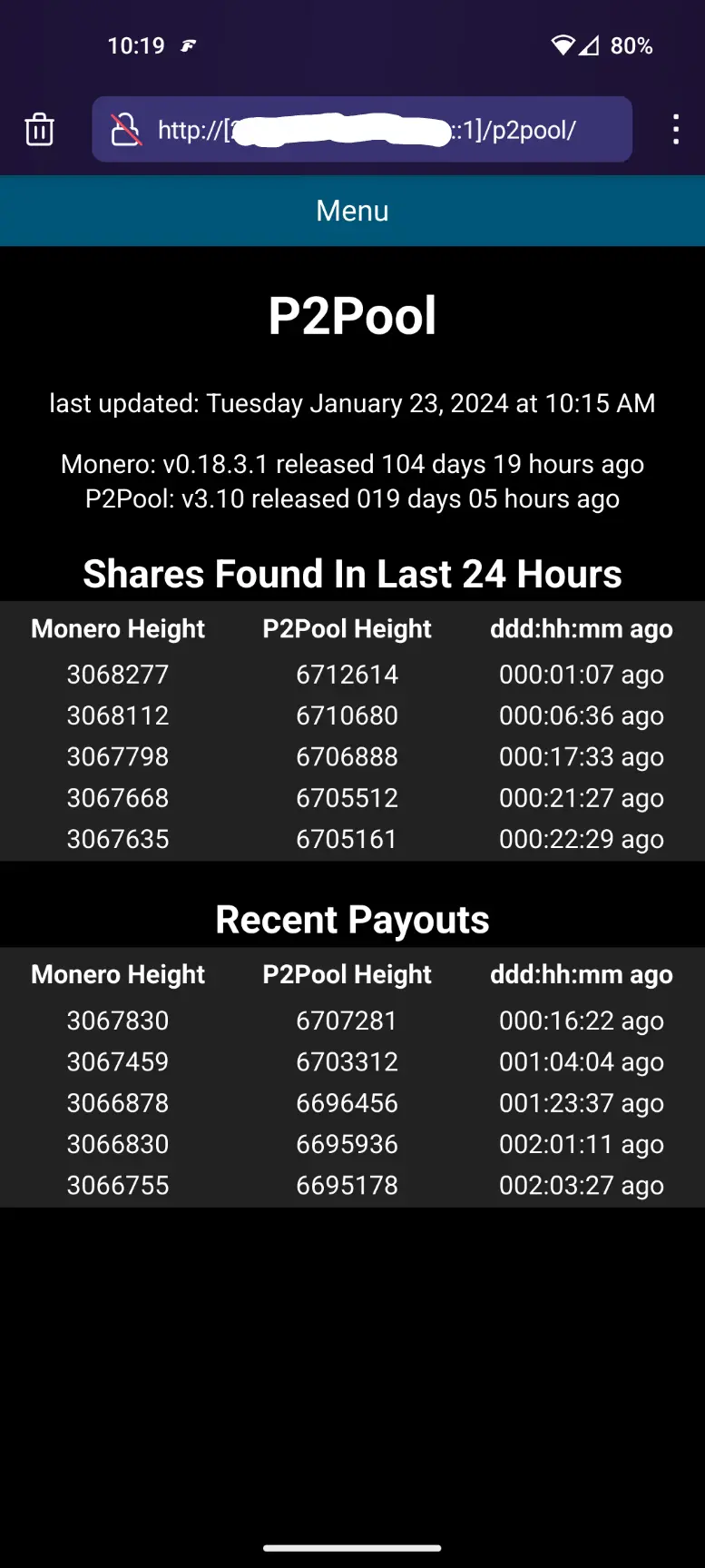Well, on desktop it worked. So you could do it that way. But on mobile, what you had to do was go to a website like Google, add it as a bookmark, and then edit the bookmark and change the web address from Google to the IPv6 address.
Probably because most people are not accessing routers and web servers through their IPv6 addresses and instead they are using IPv4s like 192.168.1.1. I mean, come on, who does that?
That patch was my only contribution to Firefox, and I didn’t research how to update the user-facing changelog. When 122 hits my phone I’ll ping the bugs, to notify the 20 nerds who actually care about the problem. Typing IPv4/IPv6 literals is a pretty niche feature on the modern web.
Ipv6 addresses now resolve directly from the address bar. Before it was treated as a search string.
How did people visit sites using ipv6 addresses before this? Ipv6 has been around for years. Seems like a slow pickup
Well, on desktop it worked. So you could do it that way. But on mobile, what you had to do was go to a website like Google, add it as a bookmark, and then edit the bookmark and change the web address from Google to the IPv6 address.
Crazy. Thanks 👍
I wonder why this wasn’t mentioned in the changelog. Seems substantial
Probably because most people are not accessing routers and web servers through their IPv6 addresses and instead they are using IPv4s like 192.168.1.1. I mean, come on, who does that?
Yeah, typing an IPv6 address on my desktop I’d annoying enough, and way worse on my phone.
It should still be supported, just not called out specifically.
That patch was my only contribution to Firefox, and I didn’t research how to update the user-facing changelog. When 122 hits my phone I’ll ping the bugs, to notify the 20 nerds who actually care about the problem. Typing IPv4/IPv6 literals is a pretty niche feature on the modern web.
Currently https://play.google.com/store/apps/details?id=org.mozilla.firefox says “Version 121.1.0, Updated on Jan 19, 2024”